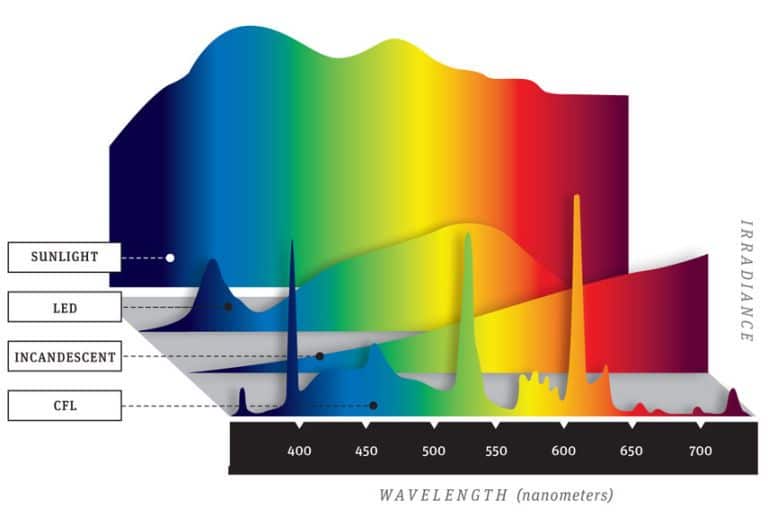This is not about ‘light/lite” foods. Truthfully, if something in a store says ‘light/lite’ (lite yogurt, lite olive oil, lite butter WHA?), it’s almost certainly worse for you. But this post is about much more than eating whole food.
Your light diet is comprised of the information you get from light exposure (you can lump all EMF in here really). This includes natural sources like the sun, and synthetic sources like your device screens, indoor lighting, city and street lights, etc. In the non visible parts of the electromagnetic spectrum, this includes energy and information from all electronic devices, the power grid, radio waves and even the Earth’s magnetic field.
But there’s also another factor. There is light information in the food we eat. In how animal cells are structured – likewise in fruits and vegetables. Beyond the reductionist nutritional content that gets broken down through cooking, this also disrupts the light information in your food and how that communicates energetically with your body. This is also a reason for eating local, so you can sync with the appropriate light diet for your environment – just as people that live in different places have adapted to different levels of sun exposure.
Every aspect of our light diet affects us to varying degrees. And positive light information sources can help to counteract the influence and make your body more resilient to negative artificial sources of light.
Lighting Choices
The lighting choices you make in your home too can play a role and lack of red and infrared light can compound these affects.
Things to avoid are high flicker rate, cool white lighting in the evening, low CRI (color rendering index) and fluorescent light (contains jarring spectrum with harsh frequencies). Incandescent and Halogen most closely align with the spectrum of the sun, but LEDs can also be OK. I find warm white LEDs to be more comfortable than cool white. Cool white lighting can have a higher ratio of blue light and affect sleep if used at night. Blue light blocking glasses at night can help to counteract the melatonin inhibiting affect of blue light.
There is a lot more to consider, but this will get you started. Your light diet can be just as important to consider for your wellbeing as your food diet.

